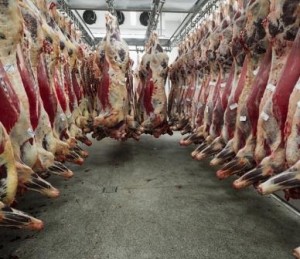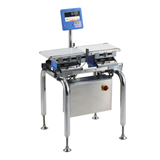The study, involving researchers from Central Queensland University, examined the link between attitudes towards animals and propensity for human-directed aggression among two primary industry cohorts, farmers and meatworkers.
Of the 67 participants surveyed, meatworkers had a significantly higher propensity for physical aggression, anger and hostility than farmers, with those from the meat processing cohort tending to display more negative attitudes to animals.
Interestingly, farmers were found to have significantly lower levels of propensity for aggression than the general community while slaughterhouse workers scored higher than the community benchmark.
Attitudes to animal welfare among the meatworker group largely depended on the type of work participants were engaged in, with those working in the boning room having lower average scores than those working on the kill floor.
Other variables including income, education and pet ownership had no significant effect on the two groups’ propensity for violence or attitudes towards animals, however 76 per cent of farmers reported having a pet compared with only 54 per cent of meatworkers.
Dr Taylor said another noteworthy finding was that women, regardless of employment as farmers or meatworkers, scored six per cent lower than men in their attitudes towards animal welfare.
"It was assumed women would be more pro-animal but this wasn’t the case," Dr Taylor said.
"Equally unexpected, female meatworkers were found to have higher propensities for aggression, particularly verbal and physical aggression, than male meatworkers and all the farmers," she said.
"Most of the current literature on the impact of meatwork employment focuses solely on the male experience but our findings show women are just as vulnerable to the physical and emotional effects of the job so this is an area in desperate need of further investigation."
Dr Taylor said the meatworker group also displayed more "utilitarian attitudes" towards animal welfare, and due to their occupations, viewed animals as commodities.
"One respondent said they agreed with the statement that breeding animals for their skins was a legitimate use of the animal ‘provided there was no waste of the rest of the animal’, which is a clear indication of this utilitarian view," she said.
In addition, Dr Taylor said propensity for aggression scores among meatworkers were similar to some reported by incarcerated populations, suggesting the constant exposure to violence within meat processing plants could cause psychological damage and lead to higher propensities for aggression.
"Further research with this population is urgently needed to ascertain the potential damaging psychological effects of being employed in the industry, not only for the individual and the community they live in but for the animals they come into contact with," she said.
"As this is an area of interest to both policymakers and the public, more research is needed to unmask the multiple issues associated with animal processing."
The study has just been published in the leading international journal Society and Animals.













